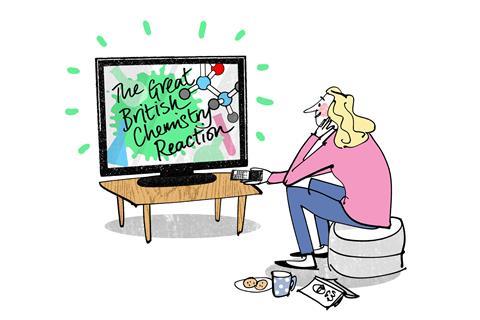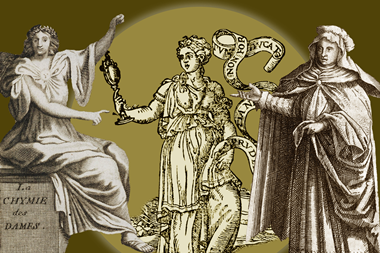Engaging with others to improve chemistry’s image

‘So, what do you do?’ My response to this question has resulted in glazed eyes, awkward silences and panicked conversation changes at family functions, first dates and house parties alike. ‘I’m doing a chemistry PhD’ seems to be the kryptonite of even the most talented small talkers and social chameleons. But why does my seemingly innocuous answer cause such a visceral reaction?
So far, my best conclusion is that chemistry has a branding issue. Even in comparison to the other sciences, there is something about chemistry that immediately deflates a conversation. Physics has the wonders of space and the discoveries of energy and electricity that power the modern world, biology encompasses all of nature, health and medicine. Whereas chemistry produces an image of white coats in labs with no clear, tangible connection to real life. As chemists, we know this isn’t the case: the work we and others have done in a lab is fundamental to all parts of daily life, but getting this idea across to a second cousin at a family gathering is challenging.
By tarnishing all chemicals with negative connotations, advertisers have given us a bad name
There are a few reasons where the branding issue may have arisen. First is how chemistry was taught in schools – the flashbacks of sitting at desks trying to learn the ideal gas law or trying to perform the iodine-clock reaction hardly bring about a sense of wistful nostalgia, and often feels hugely disconnected from real life. Added to this, within popular culture, chemistry barely gets a look in. David Attenborough’s comforting tones narrate the stories of the biological world and Brian Cox shares the wonders of the universe, but chemistry presenters are far less well known. The sole frame of reference for many people is Breaking Bad, which is far from a realistic (or legal) image. Finally, adverts will commonly describe items ranging from skincare products to vegetable boxes as ‘chemical-free’. Of course, every one of these items contains chemicals, but branding these items chemical-free is intended to mean natural and by extension safer, greener and better for the consumer. By tarnishing all chemicals with these negative connotations, advertisers have given us, the scientists who study chemicals, a bad name.
I think all these things contribute to chemistry feeling alienating which, in turn, can lead to apathy. To let people into our world, by forming connections to theirs, is vital and mutually beneficial: us chemists get to see the big picture to renew our sense of perspective, and our audience get to feel included in discussions and avoid that familiar panic.
While few of us have the power to influence what appears in the media, we can still play a part in building a more positive brand for chemistry through our interactions with non-scientists. I have four tips for engagement:
Firstly, try not to be too dismissive when people respond, ‘oh so like Breaking Bad? Do you know how to make meth?’ While this can be a little frustrating, for many people this is their closest point of contact to what goes on in a working lab.
Secondly, stick to the highlight reel – while chemistry research can have plenty of ups and downs, no one enjoys hearing how hard others work, let alone when intangible chemical reactions are to blame.
In addition, remember how alien both the research matter and the lab environment are to others, and stick to the basics. This can be true even within a chemistry building as it is easy to forget how specialised your work is.
Finally and more generally, it’s useful to have a 20 second overview of the ‘big picture’ goals of what you do ready for these kinds of conversations. Whether that is combatting climate change, making new drugs more effectively or developing the next generation of batteries, this can really help to spark people’s interest and begin a wider discussion about chemistry.
To attract intelligent and curious people into our field, we need to improve chemistry’s brand. To do so, we have to better communicate to others what we, as chemists, already know – and that is just how relevant, important, and diverse the world of chemistry can be.












No comments yet